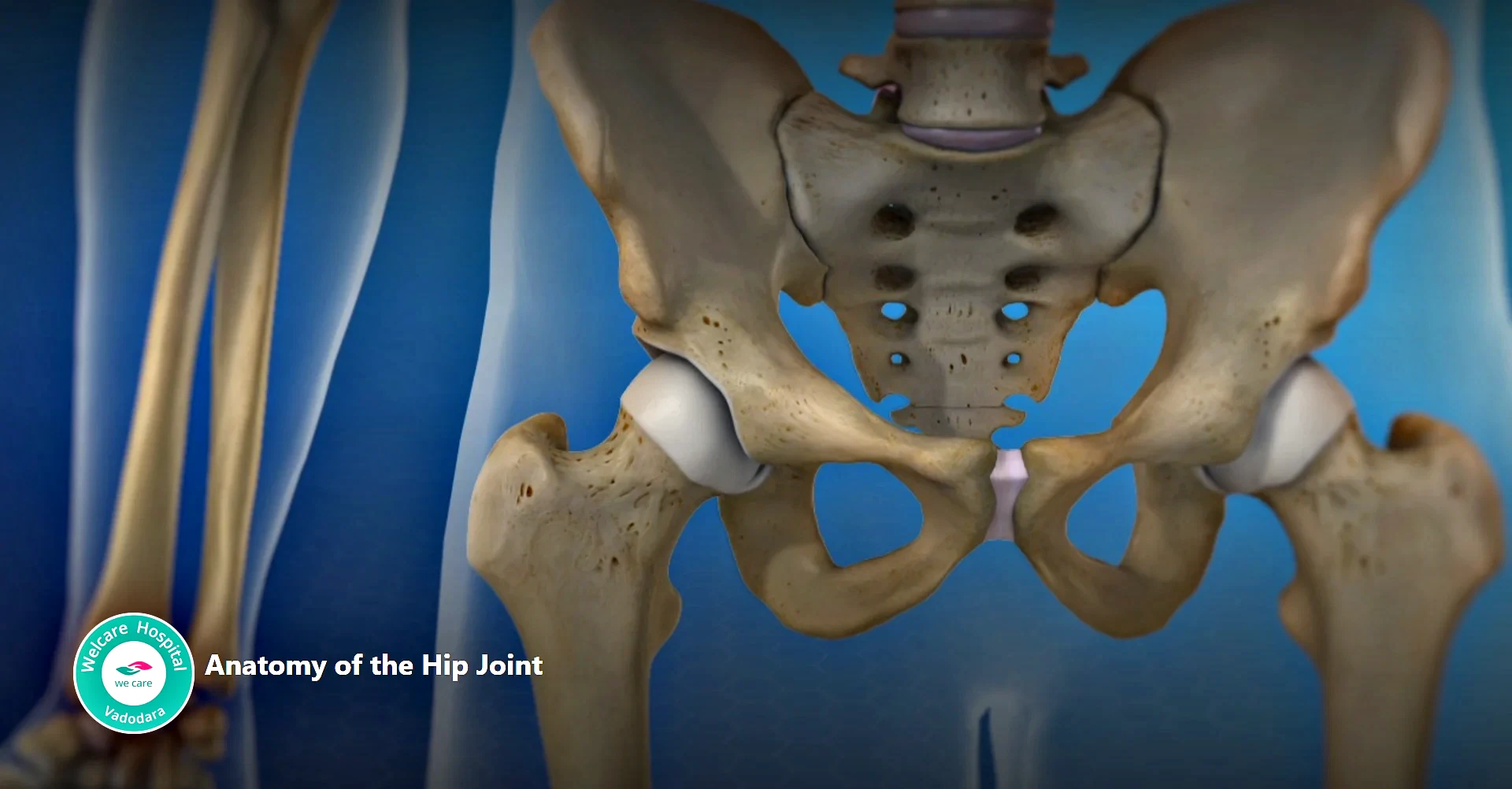Hip Treatments
Surgical Treatments
- Total hip replacement (arthroplasty): A surgical procedure to replace a damaged hip joint with an artificial implant, typically recommended for severe osteoarthritis or hip fractures.
- Hip arthroscopy: Minimally invasive surgery using a small camera and specialized instruments to diagnose and treat various hip conditions such as labral tears, femoroacetabular impingement (FAI), and loose bodies.
- Hip fracture repair: Surgical intervention to stabilize and repair a broken hip bone, often involving the use of screws, plates, or a hip replacement implant depending on the severity of the fracture.
- Hip labral repair: Surgery to repair a torn labrum, the cartilage ring that lines the rim of the hip socket, commonly performed to alleviate pain and improve hip joint stability.
- Hip resurfacing: A type of hip replacement surgery that preserves more of the patient’s natural bone by capping the femoral head with a metal prosthesis, often considered for younger, active patients with good bone quality.
- Hip osteotomy: A procedure to realign the hip joint by cutting and repositioning the bones, typically recommended for patients with hip dysplasia or early-stage osteoarthritis to redistribute weight and relieve pain.
- Revision hip replacement: Surgery to replace a previously implanted hip prosthesis that has failed due to wear, loosening, infection, or other complications, aiming to restore function and alleviate pain.
- Hip decompression surgery: A procedure to relieve pressure on the femoral head by removing damaged bone or tissue, commonly performed for conditions like avascular necrosis (AVN) or femoroacetabular impingement (FAI).
- Hip tendon repair: Surgical repair of damaged or torn tendons around the hip joint, such as the gluteus medius or iliopsoas tendon, to restore function and stability.
- Hip synovectomy: Removal of the inflamed synovial lining of the hip joint, often performed to alleviate pain and stiffness caused by conditions like rheumatoid arthritis or synovial osteochondromatosis.
Non Surgical Treatments
Non-surgical treatments for hip issues vary depending on the specific condition but may include:
- Physical therapy: Targeted exercises and stretches prescribed by a physical therapist to improve strength, flexibility, and range of motion in the hip joint, helping to alleviate pain and improve function.
- Medications: Over-the-counter or prescription medications such as nonsteroidal anti-inflammatory drugs (NSAIDs), acetaminophen, or corticosteroid injections may be used to manage pain and inflammation associated with hip conditions like osteoarthritis or bursitis.
- Lifestyle modifications: Adopting healthy habits such as maintaining a healthy weight, avoiding high-impact activities, using assistive devices like canes or walkers, and modifying daily activities to reduce strain on the hip joint can help manage symptoms and prevent further deterioration.
- Rest and activity modification: Temporary rest from activities that exacerbate hip pain, followed by a gradual return to low-impact exercises and activities, can help reduce inflammation and promote healing in the hip joint.
- Assistive devices: Using supportive devices such as orthotic shoe inserts, braces, or walking aids can help alleviate pressure on the hip joint and improve mobility for individuals with hip pain or instability.
- Heat or cold therapy: Applying heat or cold packs to the affected hip area can help reduce pain and inflammation, providing temporary relief for conditions like hip bursitis or muscle strains.
- Hip joint injections: Injections of substances such as corticosteroids or hyaluronic acid into the hip joint may provide temporary relief from pain and inflammation for conditions like osteoarthritis or synovitis.
- Platelet-rich plasma (PRP) therapy: A regenerative medicine treatment that involves injecting concentrated platelets from the patient’s own blood into the hip joint to promote tissue healing and reduce inflammation in conditions like tendinopathy or labral tears.
If you’re struggling with hip pain, stiffness, or limited movement, hip replacement surgery could be the life-changing solution you’ve been looking for. At Welcare Hospital in Vadodara, we are proud to be a leading choice for individuals seeking treatment for hip joint issues. Whether your pain is due to arthritis, fractures, or other hip-related conditions, our highly skilled Hip Replacement Surgeons in Vadodara offer personalized care to meet your needs.
Welcare's In-House 3D Printing Lab
Frequently Asked Questions
How do I know if I need hip replacement surgery?
If you are experiencing persistent hip pain, stiffness, and limited mobility, you should consult with an orthopedic surgeon to determine if hip replacement surgery is necessary. The surgeon will perform a physical exam, take a medical history, and may order imaging tests such as X-rays or an MRI to assess the extent of the damage. Based on the results of these tests, the surgeon will be able to determine if hip replacement surgery is necessary.
What are the benefits of hip replacement surgery?
Hip replacement surgery can provide significant pain relief, improve mobility, and allow you to resume normal activities. The surgery involves replacing the damaged parts of the hip joint with an artificial joint, which can provide a smooth surface for the bones to move against each other. This can help to reduce pain and stiffness and improve mobility, allowing you to resume activities that were previously difficult or impossible.
What are the risks associated with hip replacement surgery?
Like any surgery, hip replacement surgery carries some risks. The most common risks include:
- Infection: This is a risk with any surgery and can occur at the incision site or inside the joint itself. Antibiotics are usually given before and after surgery to reduce the risk of infection.
- Blood clots: These can occur in the legs and can be potentially life-threatening if they travel to the lungs. Blood thinners are usually given to reduce the risk of blood clots.
- Nerve damage: This can occur during surgery and can lead to numbness or weakness in the leg. In most cases, this is temporary, but it can be permanent in rare cases.
- Dislocation: This can occur if the new joint is not properly positioned or if the muscles and ligaments around the joint are not strong enough to support it.
What types of hip replacement surgeries are available?
There are two main types of hip replacement surgeries: total hip replacement and partial hip replacement.
- Total hip replacement: This involves replacing the entire hip joint with an artificial joint. The surgeon will remove the damaged parts of the joint and replace them with a metal or ceramic ball and a plastic socket. This is the most common type of hip replacement surgery.
- Partial hip replacement: This involves replacing only the damaged parts of the hip joint. This is a less invasive procedure than total hip replacement and is usually recommended for partial hip replacement surgery and is best suited for patients with fractures or damage to one side of the hip joint.
What is the recovery process like after hip replacement surgery?
The recovery process after hip replacement surgery can vary depending on the individual, but generally, patients can expect to stay in the hospital for a few days after the surgery. Physical therapy will begin soon after the surgery to help improve mobility and strength in the hip. Patients may also be given pain medication to help manage any discomfort.
Most patients can resume normal activities within six to eight weeks after surgery, but it may take several months to fully recover. It is important to follow the doctor’s instructions and attend all follow-up appointments to ensure a smooth recovery.
How long do hip replacements last?
The lifespan of a hip replacement can vary depending on several factors, such as the type of implant used, the patient’s activity level, and overall health. Generally, hip replacements can last anywhere from 15 to 20 years. However, with advances in technology and materials, some implants are designed to last even longer.
How much does hip replacement surgery cost in India?
The cost of hip replacement surgery in India can vary depending on several factors, such as the hospital, the surgeon, and the type of implant used. On average, the cost of hip replacement surgery in India can range from INR 2 lakhs to INR 5 lakhs. However, it is important to note that the cost can vary widely depending on individual circumstances, so it is important to consult with a surgeon and get an accurate estimate.
Can I travel after hip replacement surgery?
Most surgeons recommend avoiding long-distance travel for several weeks after hip replacement surgery. Sitting for long periods of time can increase the risk of blood clots, so it is important to take frequent breaks and move around during travel. Patients should also consult with their surgeon before traveling to ensure that they are medically cleared for travel.

